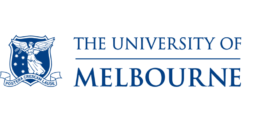
W100 Representative
Siobhan ForbesExecutive Director Marketing and Communications
Siobhan Forbes joined the University of Melbourne in July 2017.
Siobhan has experience in the public and commercial sectors, most recently within financial services at National Australia Bank. She has also worked with the Department of Health and Human Services, the Department of Employment, Education and Training, Telstra, Michelin, Transport Accident Commission, Australia Post, and Transurban, among others. She has held non-executive positions with the Australasian Shared Services Association, the Breast Cancer Institute, and St Brigid’s. Siobhan is also co-founder of a company specialising in measurement and development of social intelligence.

The University of Melbourne enjoys an outstanding reputation with world ranking consistently placing us as Australia’s leading comprehensive research-intensive university, and one of the world’s top 50 universities.
Melbourne attracts the best and brightest students and researchers. We collaborate with a wide range of organisations to achieve positive research outcomes with global impact. And, with a history of over 160 years, we occupy a special place at the heart of our city’s cultural scene, as home to a number of museums, galleries and performing arts organisations.
Our researchers are at the forefront of international scholarship in fields as diverse as human rights law, climate change, telecommunications and medical research. Among our many distinguished academics are Nobel Laureate, Professor Peter Doherty and Laureate Professor, Professor Peter Singer.
The Latest from The University of Melbourne
Congrats to our 2025 Hansen Scholars 🎉
23 students from across Australia have been awarded the scholarship which recognises high-achieving students who demonstrate commitment to helping and leading others, and experience barriers to studying at the University.
“These…
ID3+ T cells hold the key to overcoming one of the biggest challenges in treating chronic diseases — immune exhaustion 🧬
Prolonged illnesses like cancer and chronic infections often leave the immune system in a state of exhaustion, where its frontline defenders – T cells – lose…
#UniMelb affiliated startup Cell Bauhaus has received a $3 million grant from the @gatesfoundation to continue their work utilising digital twins to investigate how genetic changes alter cellular behaviour.
The grant was awarded through the Foundation’s Accelerator program to…
A trailblazing music educator, a distinguished anthropologist, champions of urban and preventative health, and a Yorta Yorta leader dedicated to a lifetime of advocacy for Aboriginal affairs, have been conferred with honorary doctorates at #UniMelb graduation ceremonies.
The…
Congratulations to the fifteen #UniMelb students who have been named as New Colombo Plan Scholars for 2025!
This marks a record number from the University to receive the scholarship since the program began in 2014.
The New Colombo Plan (NCP) Scholarships program is an…
Congratulations to our Chancellor's and Narrm Scholars 🎉
Yesterday, we were proud to offer nearly 1600 Year 12 students scholarships from our Chancellor's and Narrm Scholarships programs.
The Melbourne Chancellor’s Scholarship offers fee remissions and a guaranteed place in…
Recently, 17 #UniMelb students shared insights from their Reach program case studies at the annual Reach Conference in Toronto.
Since 2022 our students have travelled globally through the Reach program to examine how critical interventions can reach people who are geographically…
A visionary gift from Pamela Galli AO will sustain and advance research into neurodevelopmental disorders, skin cancer prevention and treatments, as well as enabling new areas of investigation and research collaboration.
The new donation, announced to an audience of researchers…
Last Friday, we shared in Diwali traditions with @UMSUunimelb on our Parkville campus, with many #UniMelb students and staff enjoying the stunning performances and dancing the night away 🪔
Read more → http://unimelb.me/4hLOULl
@UMSUintl
The University of Melbourne have over 40,000 students, including over 12,000 international students from over 100 countries
The university was established in 1853, it is the second oldest university in Australia and the oldest in the state of Victoria
Launched in 2008, the Melbourne Curriculum offers a different study path to most Australian universities, with 11 broad undergraduate degrees and and 270 professional graduate degrees
Making a positive impact across the globe
The University of Melbourne maintains over 200 agreements for academic cooperation and exchange with leading universities around the globe. It is a member of Universitas 21 and the Association of Pacific Rim Universities. The University also has the largest inbound and outbound student exchange program in Australia, with over 140 exchange partners from 37 countries.
Through implementation of their International Strategy 2017-2020, The University has developed engagement plans for three countries in the Asian region: India, Indonesia and China.
Mission and vision
- Known for service to the nation, recognising the responsibilities inherent in our role as a leader in higher education
- Consistently ranked among the top 40 universities globally
- The Australian university of choice for the most talented students and scholars worldwide
- Known for research and impact, underpinned by a comprehensive and world-leading discipline base
- Renowned for delivering learning and teaching programs that transform talented students into thoughtful and accomplished graduates
- Supportive of, and provide opportunities for, students from all cultures and all backgrounds to successfully participate in the educational, cultural and social life of the University
- Renowned for achieving student satisfaction and graduate outcomes comparable to the best universities in the world
- Fully engaged in the life, culture and aspirations of Melbourne and the regions we serve
- Recognised as a leader in embedding sustainability in all aspects of the University’s operations, teaching and learning, research and engagement
- Deeply connected with business, government and community, using our campus precincts to attract partners with whom we can have mutually beneficial research, learning and teaching, and engagement relationships.
Ranked #7 worldwide for graduate employability
100+
Research centres and institutes
$474m
Annual research income
Research at Melbourne is guided by its research and research training strategy Research @ Melbourne: Ensuring Excellence and Impact to 2025. The strategy commits the University to pursue three Grand Challenges as a public-spirited, research-intensive institution:
- understanding place and purpose
- fostering health and wellbeing
- supporting sustainability and resilience.
The University maintains a comprehensive research base across a broad range of disciplines. This comprehensive approach provides a critical advantage in tackling diverse research questions from a range of perspectives while maintaining preparedness for unknown challenges and opportunities. The interdisciplinary Melbourne Research Institutes bring together researchers from across the University to tackle key societal issues and challenges in innovative ways:
- Institute for a Broadband Enabled Society (IBES)
- Melbourne Energy Institute (MEI)
- Melbourne Neuroscience Institute (MNI)
- Melbourne Social Equity Institute (MSEI)
- Melbourne Sustainable Society Institute (MSSI)
- Melbourne Material Institute (MMI)
- Melbourne School of Government (MSoG)
At Parkville, the University serves as the dynamic hub of the Melbourne Biomedical Precinct – the largest cluster of medical researchers in Australia. Through initiatives such as the Doherty Institute for Infection and Immunity, the Melbourne Brain Centre, and the Comprehensive Cancer Centre, the University is deeply involved with precinct partners, such as the Walter and Eliza Hall Institute, the Bio21 Molecular Science and Biotechnology Institute, Peter MacCallum Cancer Institute, the Florey Institute of Neuroscience and Mental Health, the Murdoch Children’s Research Institute, Melbourne Health, and the many hospitals in the area, striving to find ways to improve the health of Australians and to discover new treatments and procedures.
Become a Member
The World 100 Reputation Network is a group of the best universities in the world, delivering research that enhances reputation and offering leaders the chance to develop their own careers on a global stage. Members benefit from events and study tours, training, monthly media monitoring, and unique reputation research to provide institutional advantage.



